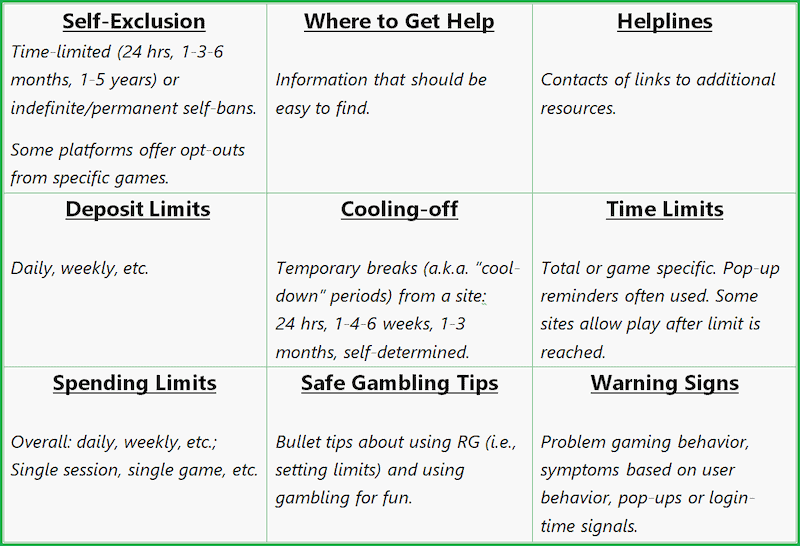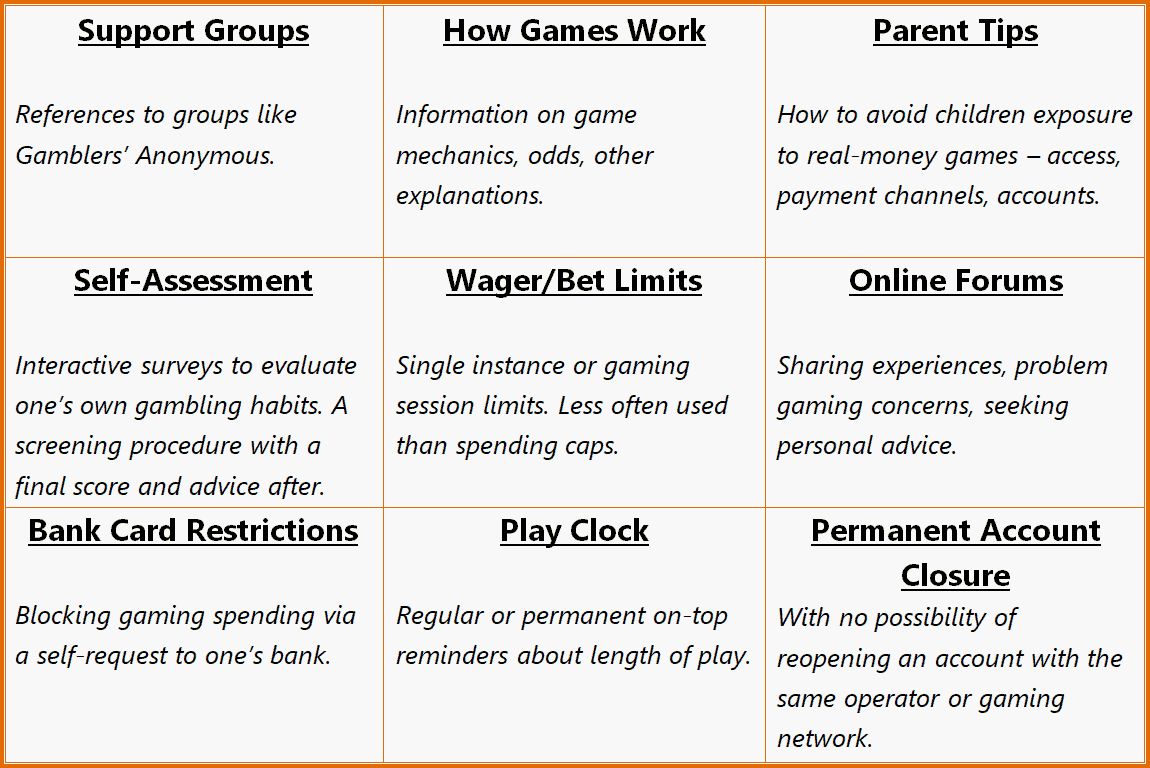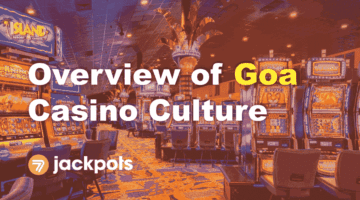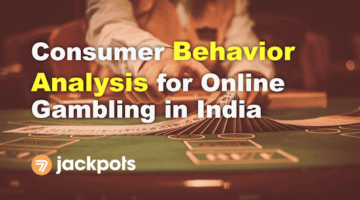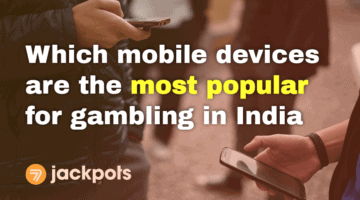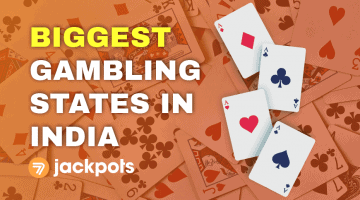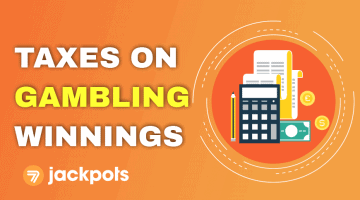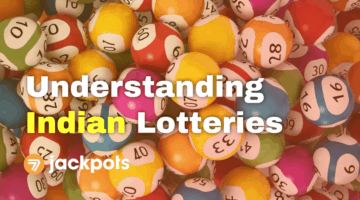Why Do We Need a Responsible Gaming Approach?
Responsible gaming or gambling – also known as Safe Gambling – is an initiative for greater social responsibility promoted by the gaming industry. It is intended to go above and beyond any licensing and regulation requirements. Read more about What Is a Responsible Gaming Policy.
Online real-money gaming is a highly competitive sector, and legitimate operators need to stand out when compared to unregulated sites and apps. Thus, RG is promoted as a set of standards that testify to the fairness and integrity of participating operations.
RG policies aim to raise awareness of the potential harms of playing with real money in the first place. Problem gaming, evolving in some cases into gambling addiction, is a serious psychological condition and a poster example of RG objectives and prevention tools. However, both the stakeholders and the policy targets are much more extensive.
Setting Standards
Government agencies, regulators, B2B vendors, operators, health services, community groups, and consumers all have roles in designing, implementing, and monitoring RG initiatives. They carry out prevention and awareness campaigns and impose regulations and industry standards. Besides problem gaming states, this makes RG policies impact underage gambling, privacy issues, and media campaigns. Ultimately, this leads to a higher degree of consumer satisfaction but, more importantly, a safer, more secure, and more reliable gaming scene.
The final beneficiaries of RG policies are the consumer base as a whole, not only potential problem gamers. This is important to understand as prevention is at the basis of the segment’s reliability and sets it apart from black market operators. University studies show that RG programs are often misinterpreted as addressing those who already have a problem. That cannot be farther away from the truth as users that do not recognise the sensitivity of these issues. Or do not identify their own status correctly – might ignore RG advice and tools.
Still, being aware and setting personal limits are gaming touchstones that most players seem to stick to even without an explicit RG policy in place. According to a global survey of online gaming communities, 39% of users are more likely to play a socially responsible game.
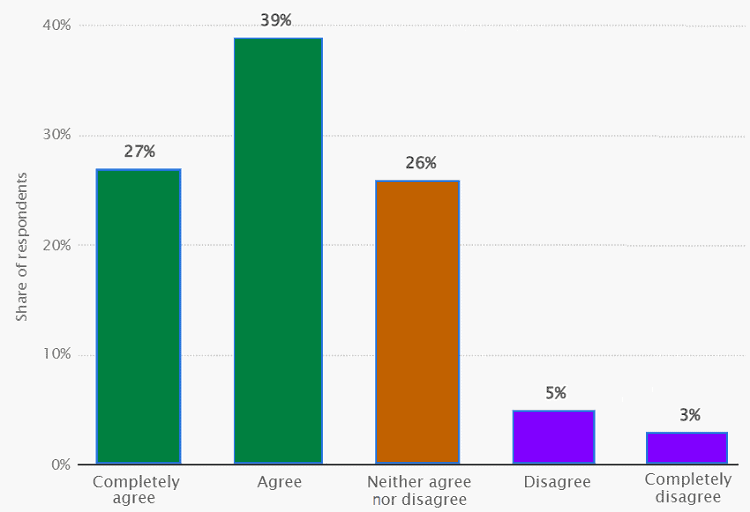
Combined with the 27% completely agreeing with the precondition, we see that two-thirds of all players appreciate or even expect such settings. Positive online experiences are measured mostly by the “right fit” of game playing conditions. Particularly in the past couple of years when even casual gamers spent more time playing.
Personal Responsibility vs. Operator Due Care
Another crucial aspect of RG policies is the predominant focus on individual user accountability. More recently, the debate has shifted towards the responsibility of gaming operators to make the platform “safe”, almost fool-proof (in evading RG tools). However, moving away from personal responsibility ignores psychological models that have been proven to relate directly and determine harmful behaviour – Self-Efficacy and Locus of Control above all. This is why RG initiatives aim to promote gamer choice by being informative about their options and potential negative consequences.
Despite that, a new wave of RG campaigns stresses the importance of dialogue in defining the right gaming environment independent of subjective (personal) responsibility. The latter is vital to understand problem gaming factors. But the industry needs to channel the treatment of disorders to healthcare professionals and worry about setting up real-money platforms in a socially responsible manner.
Beyond operators, this also impacts software suppliers and other service providers. RG principles and codes of conduct are often framed by regulators, trade associations, and NGOs. Some standards overlap due to their independent evolution and often fragmented legal bases, especially in young and dynamic gaming markets. Still, the pillars of Responsible Gaming are more or less industry-wide and recognised in terms of best practices and quality standards.
In the end, gambling and real-money gaming operators have an interest in entertaining a larger player pool, having more fans play out a small amount for fun. No reputable gaming platform wants to create itself a bad reputation, let alone problems with authorities or consumer groups. This explains in a pragmatic manner why RG policies and tools are (and should be) mostly self-imposed. And generally accepted in the real-money gaming world.
An Overview of Digital RG Tools
The social responsibility of the gaming industry needs to be rendered into specific methods and carried out through concrete tools. Some are based on real-money gaming regulations and are particularly stressed in the licensing process. The main RG priorities are:
- Protection of children and vulnerable users;
- Game fairness and transparency;
- No gaming industry relation to criminal activities of any sort.
Therefore, all RG tools are designed to support these objectives. Simplified to more relatable player experiences, RG aims to guide gamers to play only:
- for entertainment, never for economic needs;
- up to amounts one can afford to lose (deposit and wagering limits are there for a reason).
And not play if:
- not of necessary age (18 or 21 in some jurisdictions);
- gaming impairs daily performance (work or personal);
- recovering from addiction;
- under the influence of alcohol or drugs;
- chasing losses.
For some players, these rules are implicit, while for others, they need to be specified and, more importantly, reminded or imposed with the help of digital tools.
What Is a Responsible Gaming Policy – The Most Common RG Methods
Responsible gaming practices promote a more regulated online gaming market. As such, the issue of underage real-money gaming should not even be on the list of RG policies as there is little to discuss or justify – youth under a certain age should not be allowed to play games of chance for real money. Regardless of the degree of market liberalisation, allowing minors to gamble is a crime everywhere. It is also part of all reputable operators’ base-level Know-Your-Customer (KYC) policies.
The added value of RG policies starts with addressing problem gambling and vulnerable players. However, they also achieve significant success in setting up responsible marketing and advertising, upholding sports (betting) integrity, and avoiding money laundering. And other criminal activity from potentially influencing a fair gaming environment. (See more on positive RG spillovers below).
The most common RG tools found at online gaming platforms are:
RG Tools
Whether the real-money gaming segment is casino, lottery, “instant” games (e.g., scratch-card type), bingo, sports betting, or fantasy sports, all of the above are applicable as RG tools within an online platform or a mobile app. (N.B. Poker is often seen as a separate game type, although a casino standard). They have proven efficient over time and across gambling jurisdictions, gaming cultures, and market specifics.
The two most used tools – time-outs and self-exclusions – deserve a closer look. The first kind are temporary and reversible pauses from gaming. Temporary exclusions are also known as cool-offs. In the US, the leading fantasy sports operators promote the measure as a healthy approach to keeping the customer in the long run. Users are reminded that many bigger operators run several products (online casino and sports betting). And the self-exclusion period covers all types of real-money games.
Measures employed in regards to gambling
Self-exclusions are usually longer-term measures, sometimes even permanent. To the extent that operators and their partners would not even send gaming-related communications of any kind to the excluded users. Exclusions are employed by players that recognise potential self-harm in their behaviour. The procedure may also be initiated by family members and friends on behalf of the gamer, but policies differ across operators and markets.
Exclusions entail a formal agreement with a single online operator or several related sites or apps (multi-operator). The hugely successful GAMSTOP (UK), Spelpaus (Sweden) and ROFUS (Denmark) allow players to self-exclude from all licensed online operators with a single request. In addition, the top platforms provide links to various third-party site-blocking apps.
There are also several RG tools that are frequent enough to be employed by a number of operators but not the majority. These are:
How operators and licensees implement these methods is a matter of requirements, capacities, and technical tools. Beyond doubt, however, digital platforms make it much easier to develop and roll these out than in any other “traditional” gaming settings. Be those legitimate land-based facilities or grey-market operations of any kind.
Do These Tools Actually Work?
Studies have repeatedly shown that the majority of players practice safe gaming. However, it can still cause harm to some – mostly due to inexperience, “binge gambling,” or loss of self-control for any reason. Gambling addiction is a serious, often chronic condition that can cause harm to the player, their families, colleagues, and the wider community. This is what RG policies are up against, and there is a growing body of research on the matter, fortunately.
Not surprisingly, low-risk gamers are more likely to set spending limits in advance. But this particular tool is still “underused” according to industry scholars, despite proof that it impacts player experience positively.
Self-exclusion programs have also been the subject of several studies. A test in France showed that a week-long cool-off period did not change player behaviour immediately after. But it also had measurable longer-term positive effects on their gambling habits. Operator data shows that the actual use of safe gaming tools usually corresponds to the share of problem gamers.
2.1% of players in Brazil are currently self-excluded or have closed their account, and 0.4% have requested a time-out period.
Casual (non-problem) gamblers almost always have a positive experience with RG tools. Those considered at moderate risk have produced overall positive feedback in field tests. Including less irritation with links to previous RG experience compared to non-problem players.
Feedback
When choosing to receive relevant feedback about their gambling track record, even at-risk player groups showed a largely positive impact on subsequent gambling sessions, including reduced spending.
Naturally, non-problem gamers had the lowest rates of abandoning a platform due to “overexposure” to RG tools (5.2%) compared to vulnerable or problem groups (25.9%). Segmented tests revealed no reasons for limiting the scope, design, and implementation of RG tools for fear of disturbing recreational players. The large majority in any setting or market.
Studies have also been conducted with the help of operator-provided big data. RG tool usage has been evaluated through behavioural tracking data on limit setting, pop-up messages, self-exclusions, and individual feedback. Results showed that personalised feedback (combined with pre-set limits) effectively reduced excessive gaming times and amounts spent.
Top-Rated RG Policies: How Is Success Measured?
Companies committed to addressing critical gaming issues do not only inform and educate their consumers. They also support market regulation, strive to prevent fraud, support responsible marketing, and promote the integrity of sports.
In the UK, licence conditions and codes of practice (LCCP) are combined into a rulebook that indicates measures considered good practice – whether formally required or merely recommended.
Yet, to prove the success of RG policies (beyond the field research cited above), regulators and interest groups need to have actual statistics on consumer engagement with safer gaming tools and methods. An online survey conducted in 2020 showed:
- players use spending limits more than any other tools;
- younger online gamblers are more likely to use RG tools;
- the 18-34 age cohort is most likely to self-exclude;
- most players are aware of Terms and Conditions (T&C) but rarely read them.
Such results show that an emphatically mature market such as the British one has established awareness of RG tools and an overall acceptance of these policies.
Other notable European examples include Sweden, where self-exclusion from online gaming has seen notable success rates – over 80,000 people. In a country of just over 10 million, with 8 million adults around, half of which play real-money games. These figures are encouraging, covering more than the estimated vulnerable and problem gamers in the nation.
What Is a Responsible Gaming Policy – Further Layers of Consumer Protection
Responsible gaming policies and ethical codes of operation lead to proactive involvement in programs that positively affect the social impact of real-money gaming.
First and foremost, the financial integrity of a responsible gaming operator leads to less fraudulent behaviour and possible links between gaming and crime activities. KYC protocols and the latest technology enable user verification, fraud prevention, and anti-money laundering processes.
Supporting the integrity of sports also means avoiding spending on unlicensed betting sites. Reputable operators collaborate with leagues, sponsor teams. And youth development and deploy cutting-edge monitoring and AI analysis tools to ensure a fair betting scene.
Simple commitments like quick and accurate customer payouts are taken a step further. With RG policies prohibiting reverse withdrawals in many cases (being allowed to instantly re-deposit the one’s withdrawn winnings).
A fair and ethical gaming market also means that most operators tend to subject their products to the external evaluation of game mechanics, return-to-player rates (RTP), and other quality assurance standards.
Socially responsible gaming companies pay more attention to player privacy and information handling. User records are never disclosed unnecessarily, e.g., without formally authorised requests by public authorities or magistrates.
Responsible marketing also means advertisers adhere to a safe real-money gaming culture. Digital segmentation allows for avoiding minors or vulnerable groups as ad targets. Ultimately, transparent promotional campaigns are always viewed positively by consumer groups.
Some of the above are formally required by regulators; others are self-imposed by operators and service providers. Undeniably, however, these are positive spillover effects of the general RG outlook that has been defining the industry for the past several years.
Best Practices from Regulated Markets – Doing More, Going Further
Jurisdictions with well-established licensing procedures often specify RG standards and information disclosure basics. For example, the Malta Gaming Authority (MGA) requires certain RG elements to be “permanently visible” on gaming sites. Dedicated RG pages should also be “no more than one click away” from any other sub-page or mobile app interface.
The UK Gambling Commission has a number of partners in its safe gaming campaigns. All within a National Strategy to Reduce Gambling Harms developed by an Advisory Board for Safer Gambling. The NGO-run GambleAware offers a range of support services from education, prevention, and research to treatment programs.
There is also an RG Industry Group responsible for raising relevant gaming standards. One, in particular, is the Safer Gambling Standard, an independent quality measurement that assesses gaming businesses’s efforts to protect players from potential harm.
Identification and Prevention methods
The Swedish Gambling Authority’s regulations include precise technical requirements for the inspection, testing, and certification of gambling service providers. Gaming platforms must be able to generate reports on deviations in a player’s gambling behaviour and habits over time. As a result, certain tools are activated that inform, protect and enable the player to follow RG recommendations.
Sweden also has a remarkable track record with RG studies. LeoVegas Group recently launched a research project with Karolinska Institutet, a research-led medical university recognised as one of the world’s best medical schools. The collaboration aims to deepen the understanding of gambling disorders and improve identification and prevention methods.
The state-owned gaming operator and former monopolist, Svenska Spel, has a dedicated Research Council that conducts its own studies on RG tools and methodologies. The dose-effect relationship is examined via various feedback mechanisms to evaluate fine-tuning and RG tool upgrades. It is, namely, the success of the RG tool setup that the operator’s main RG method – Playscan. It is also deployed in neighbouring Norway, allowing risk detection and management across markets.
Awareness, psychological and behavioural studies
Canada has recently extended legal gambling to several provinces due to extensive RG studies, stakeholder planning, and public awareness campaigns. All sites have RG sections and branded programs like Ontario’s PlaySmart and British Columbia’s GameSense. Public gaming operators devolve substantial sums from their gaming revenues (e.g., 3.5% in Ontario) to problem gaming and RG initiatives.
Canadian provinces also participate in and publish plenty of research on the subject. Private institutes like the Gambling Research Exchange Ontario and GamRes support authorities with psychological and behavioural studies. For example, the Positive Play Scale (PPS) is a psychometric tool measuring gambling awareness and behaviour in several categories – Pre-Commitment, Gambling Literacy, Honesty and Control, and Personal Responsibility. Study results are subsequently used in the design of platforms and game mechanics.
In the US – where media exposure is more effective than anything else – prominent sports figures and stars are signed as ambassadors to promote RG policies and good practices. Industry stakeholders participate in the “Practice Safe Bets” ad campaign, while the American Gaming Association organises an RG Education Month every year.
In Singapore, the Social Ministry has adopted a set of Gambling Social Safeguards. The National Council on PG promotes key strategies and follows up with concrete measures on prevention (through education), mitigation (via said safeguards), and remedies (by help services to gamers and their families.
In Cyprus (where real-money games are only available to persons over 21 years), there is a Responsible Gaming Action Plan with clearly defined roles and tasks for all public or private stakeholders before any content is even delivered to the player. All RG policies are regulated and monitored by the National Gaming and Casino Supervision Commission.
Do Skill and Chance Games Make a Difference in RG Policy?
The Skill over Chance debate provides important distinctions in legal and industry terms. These macro-categories, however, have considerably less impact on player behaviour and economic impact. Some of the most popular skill games – like fantasy sports and sports betting, with horse racing as a standout example – are based on real-money deposits. Poker, and several other card games, may be played to a better outcome with the help of various strategies, including card counting.
More than luck itself, games can be viewed differently by the type of opponent. When playing against the house, the game involves a predominant element of chance in most cases. Skill games are often played against other players, or at least gaming performance is comparable (e.g., fantasy leagues).
In the end, however, all games involving real money can generate potentially sensitive conditions that may be harmful to minors or vulnerable players. Getting carried away, chasing losses or “rematch” sessions is no different between skill and chance genres.
This is why RG tools’s value and efficiency depend not on game types but on their nature. The relevance of safe gaming policies remains in any ethical and strategic considerations. And in practical terms, online settings provide more options in suggesting or enforcing RG methods. Studies agree that regular real-money gamers also endorse IT tools as more effective in reducing any possible negative consequences of gambling.
Emerging Gaming Markets Can Learn from RG Success
All regulated gaming markets have concluded that most adults who play do it for entertainment. Thus, manage to stick to responsible gaming levels. Only a small percentage report signs of problem gaming behaviour. With typical shares anywhere between 0.5% and 3.3% of actively playing adults in mature markets.
Consequently, government agencies and regulators develop and promote Responsible Gaming strategies that address problem gaming. But are addressed to the general player audience. Rapidly developing gaming markets that lack the necessary public awareness and education on the matter can benefit greatly from developing a national RG strategy based on existing research, training, and evaluation methods.
Prevention and Mitigation
These elements constitute the bases of prevention and mitigation. All of which precede (in time and importance) any treatment programs made available for gambling disorders. Thus, effective RG policies create risk awareness, safely deliver games and provide support services to those in need – in that order.
State and National jurisdictions have a wide selection of existing resources and comprehensive guides at their disposal. Should they wish to address online gaming with social responsibility in mind. There are roadmaps on how to develop an RG plan, disclosures, and advertising requirements. There are also plenty of good practices in setting up the most common RG tools, like exclusion programs, time and spending limits and channeling players to counseling and treatment options.
A framework regulation can ensure the integrity of the industry as well as the legitimacy of domestic operations. With RG as a guiding principle, lawmakers could justify online gaming as a healthy sector to provide jobs and increase tax revenues while protecting consumers. Even more relevantly, a transparent and ethical gaming industry generates the necessary public funding for authorities to monitor and control the market.
Put simply, an RG-based approach to online gaming regulation will look good in political campaigns and work well in practice.

